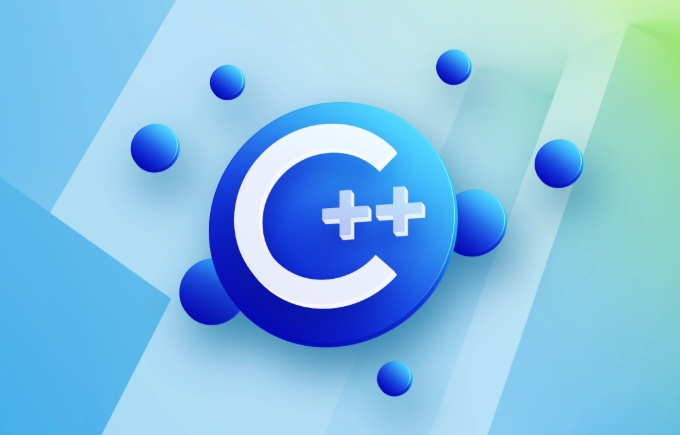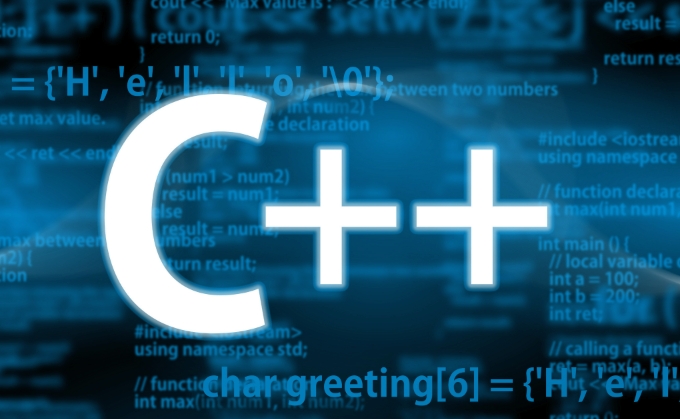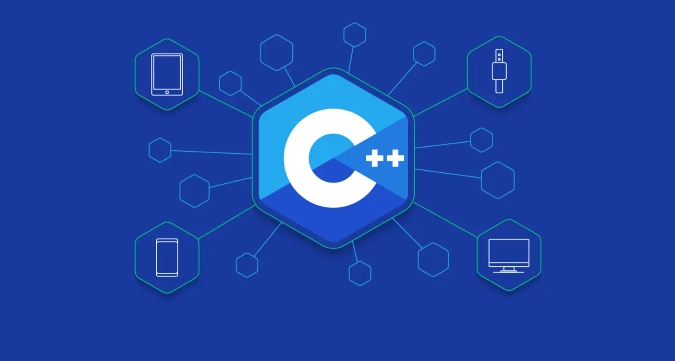This article provides developers familiar with C language with key points to quickly get started with C. 1. Classes and objects: C's class is an upgrade of the C structure, supports encapsulating data and methods, and introduces access control characters private and public. 2. Constructor and destructor: implement automatic object initialization and resource release. The constructor has no return type. It is recommended to use an initialization list. 3. STL: The standard template library provides efficient containers such as vector, map, and set, simplifying common data structure operations. 4. Namespace and input and output: Use cin/cout instead of scanf/printf to avoid name conflicts through namespace. Mastering these core contents can create practical C programs.

If you are already familiar with C language and want to get started with C quickly, then this article will directly focus on the key points. C is not a completely independent new language. It developed on the basis of C, so you already have a good starting point. However, C has introduced many new concepts and mechanisms, such as classes, objects, templates, STLs, etc., which require you to gradually adapt.

The following starts from several key points to help you convert the basics of C into the ability to write C code.

Class and Object: Upgraded version of C structure
In C, we use struct to organize the data. In C, class is an enhanced version of struct . In addition to encapsulating data, it can also include functions (methods).
class Rectangle {
private:
int width, height;
public:
void set(int w, int h) {
width = w;
height = h;
}
int area() {
return width * height;
}
};You can use this class like this:

Rectangle r; r.set(3, 4); cout << r.area(); // Output 12
Some points to note:
-
privateandpublicare access control characters that can protect internal data from being modified by external arbitrarily. - C allows functions to be defined in classes, which cannot be done in C.
- The default access permission of the class is
private, while the default access permission ofstructispublic, which is one difference between the two.
Constructors and destructors: Automatically executed initialization and cleaning
In C, initializing a structure usually requires manually calling a function, such as init_rect() . C provides constructors that allow you to automatically complete initialization when creating objects.
class Rectangle {
public:
Rectangle(int w, int h) : width(w), height(h) {
cout << "Initialized";
}
~Rectangle() {
cout << "Destroyed";
}
private:
int width, height;
};- The constructor has no return type, and the name is the same as the class name.
- Using initialization lists (
: width(w), height(h)) is more efficient and is recommended. - The destructor is used to free resources and is automatically called at the end of the object's life cycle.
STL: Standard template library, making container operation easier
C programmers often implement linked lists, queues and other structures themselves. The C standard library provides powerful container classes, such as vector , map , set , etc., which are not only efficient, but also reduce the possibility of errors.
For example, use vector instead of dynamic arrays:
#include <vector>
using namespace std;
vector<int> nums;
nums.push_back(10); // Add element for (int n: nums) {
cout << n << endl;
}Common containers are:
-
vector: dynamic array, suitable for sequential access -
map: key-value pair storage, suitable for search -
set: Automatically sorted collection to avoid duplication
suggestion:
- Familiar with iterators and range-based for loops
- Use algorithm libraries (such as
sort,find) instead of writing loops yourself
Namespace and input and output: say goodbye to printf and embrace iostream
C has its own input and output methods, such as cin and cout , which are safer and easier to scale than scanf and printf .
#include <iostream> using namespace std; cout << "Hello, world!" << endl; int x; cin >> x;
In addition, namespace can help you organize your code and avoid name conflicts:
namespace math {
int add(int a, int b) {
return ab;
}
}
math::add(2, 3); // Call methodBasically that's it. C has many advanced features, such as templates, inheritance, polymorphism, smart pointers, etc., but if you already have the foundation of C, you can first master the above content and write a practical C program. There is no need to pursue the plenary session from the beginning, and it is better to learn while writing.
The above is the detailed content of C tutorial for C programmers. For more information, please follow other related articles on the PHP Chinese website!

Hot AI Tools

Undress AI Tool
Undress images for free

Undresser.AI Undress
AI-powered app for creating realistic nude photos

AI Clothes Remover
Online AI tool for removing clothes from photos.

Clothoff.io
AI clothes remover

Video Face Swap
Swap faces in any video effortlessly with our completely free AI face swap tool!

Hot Article

Hot Tools

Notepad++7.3.1
Easy-to-use and free code editor

SublimeText3 Chinese version
Chinese version, very easy to use

Zend Studio 13.0.1
Powerful PHP integrated development environment

Dreamweaver CS6
Visual web development tools

SublimeText3 Mac version
God-level code editing software (SublimeText3)

Hot Topics
 C Polymorphism : is function overloading a kind of polymorphism?
Jun 20, 2025 am 12:05 AM
C Polymorphism : is function overloading a kind of polymorphism?
Jun 20, 2025 am 12:05 AM
Yes, function overloading is a polymorphic form in C, specifically compile-time polymorphism. 1. Function overload allows multiple functions with the same name but different parameter lists. 2. The compiler decides which function to call at compile time based on the provided parameters. 3. Unlike runtime polymorphism, function overloading has no extra overhead at runtime, and is simple to implement but less flexible.
 What Are the Different Kinds of Polymorphism in C ? Explained
Jun 20, 2025 am 12:08 AM
What Are the Different Kinds of Polymorphism in C ? Explained
Jun 20, 2025 am 12:08 AM
C has two main polymorphic types: compile-time polymorphism and run-time polymorphism. 1. Compilation-time polymorphism is implemented through function overloading and templates, providing high efficiency but may lead to code bloating. 2. Runtime polymorphism is implemented through virtual functions and inheritance, providing flexibility but performance overhead.
 C : Is Polymorphism really useful?
Jun 20, 2025 am 12:01 AM
C : Is Polymorphism really useful?
Jun 20, 2025 am 12:01 AM
Yes, polymorphisms in C are very useful. 1) It provides flexibility to allow easy addition of new types; 2) promotes code reuse and reduces duplication; 3) simplifies maintenance, making the code easier to expand and adapt to changes. Despite performance and memory management challenges, its advantages are particularly significant in complex systems.
 C Destructors: Common Errors
Jun 20, 2025 am 12:12 AM
C Destructors: Common Errors
Jun 20, 2025 am 12:12 AM
C destructorscanleadtoseveralcommonerrors.Toavoidthem:1)Preventdoubledeletionbysettingpointerstonullptrorusingsmartpointers.2)Handleexceptionsindestructorsbycatchingandloggingthem.3)Usevirtualdestructorsinbaseclassesforproperpolymorphicdestruction.4
 Polymorphism in C : A Comprehensive Guide with Examples
Jun 21, 2025 am 12:11 AM
Polymorphism in C : A Comprehensive Guide with Examples
Jun 21, 2025 am 12:11 AM
Polymorphisms in C are divided into runtime polymorphisms and compile-time polymorphisms. 1. Runtime polymorphism is implemented through virtual functions, allowing the correct method to be called dynamically at runtime. 2. Compilation-time polymorphism is implemented through function overloading and templates, providing higher performance and flexibility.
 C tutorial for people who know Python
Jul 01, 2025 am 01:11 AM
C tutorial for people who know Python
Jul 01, 2025 am 01:11 AM
People who study Python transfer to C The most direct confusion is: Why can't you write like Python? Because C, although the syntax is more complex, provides underlying control capabilities and performance advantages. 1. In terms of syntax structure, C uses curly braces {} instead of indentation to organize code blocks, and variable types must be explicitly declared; 2. In terms of type system and memory management, C does not have an automatic garbage collection mechanism, and needs to manually manage memory and pay attention to releasing resources. RAII technology can assist resource management; 3. In functions and class definitions, C needs to explicitly access modifiers, constructors and destructors, and supports advanced functions such as operator overloading; 4. In terms of standard libraries, STL provides powerful containers and algorithms, but needs to adapt to generic programming ideas; 5
 What Are the Various Forms of Polymorphism in C ?
Jun 20, 2025 am 12:21 AM
What Are the Various Forms of Polymorphism in C ?
Jun 20, 2025 am 12:21 AM
C polymorphismincludescompile-time,runtime,andtemplatepolymorphism.1)Compile-timepolymorphismusesfunctionandoperatoroverloadingforefficiency.2)Runtimepolymorphismemploysvirtualfunctionsforflexibility.3)Templatepolymorphismenablesgenericprogrammingfo
 C Polymorphism: Coding Style
Jun 19, 2025 am 12:25 AM
C Polymorphism: Coding Style
Jun 19, 2025 am 12:25 AM
C polymorphismisuniqueduetoitscombinationofcompile-timeandruntimepolymorphism,allowingforbothefficiencyandflexibility.Toharnessitspowerstylishly:1)Usesmartpointerslikestd::unique_ptrformemorymanagement,2)Ensurebaseclasseshavevirtualdestructors,3)Emp






